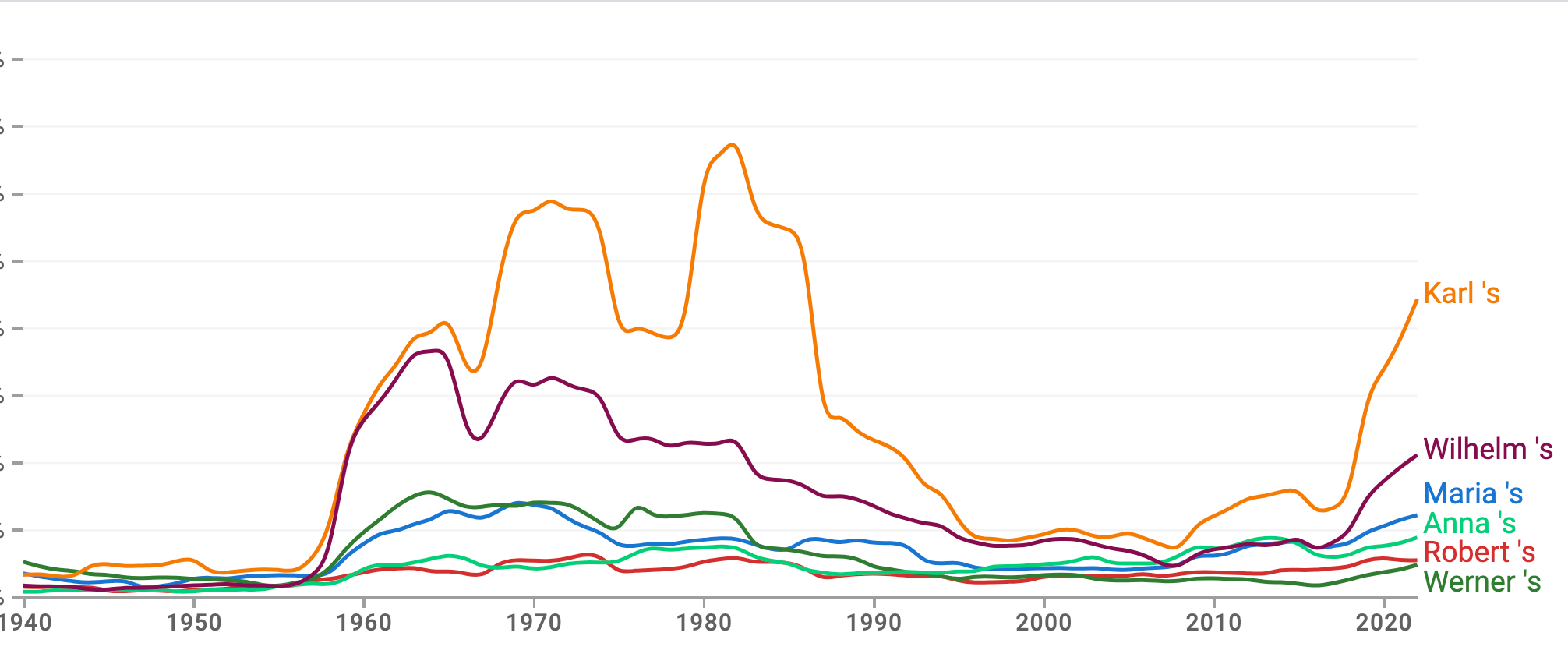Invisible text via Unicode tag characters
If you open this file in your browser, you'll see only an an left square bracket followed by a right square bracket, with nothing in between:

But if I run the file through a perl script that I wrote long ago to print out character codes and their names, I get
|[| 0x005B "LEFT SQUARE BRACKET" || 0xE004C "TAG LATIN CAPITAL LETTER L" || 0xE0061 "TAG LATIN SMALL LETTER A" || 0xE006E "TAG LATIN SMALL LETTER N" || 0xE0067 "TAG LATIN SMALL LETTER G" || 0xE0075 "TAG LATIN SMALL LETTER U" || 0xE0061 "TAG LATIN SMALL LETTER A" || 0xE0067 "TAG LATIN SMALL LETTER G" || 0xE0065 "TAG LATIN SMALL LETTER E" || 0xE0020 "TAG SPACE" || 0xE004C "TAG LATIN CAPITAL LETTER L" || 0xE006F "TAG LATIN SMALL LETTER O" || 0xE0067 "TAG LATIN SMALL LETTER G" |]| 0x005D "RIGHT SQUARE BRACKET"
Read the rest of this entry »

